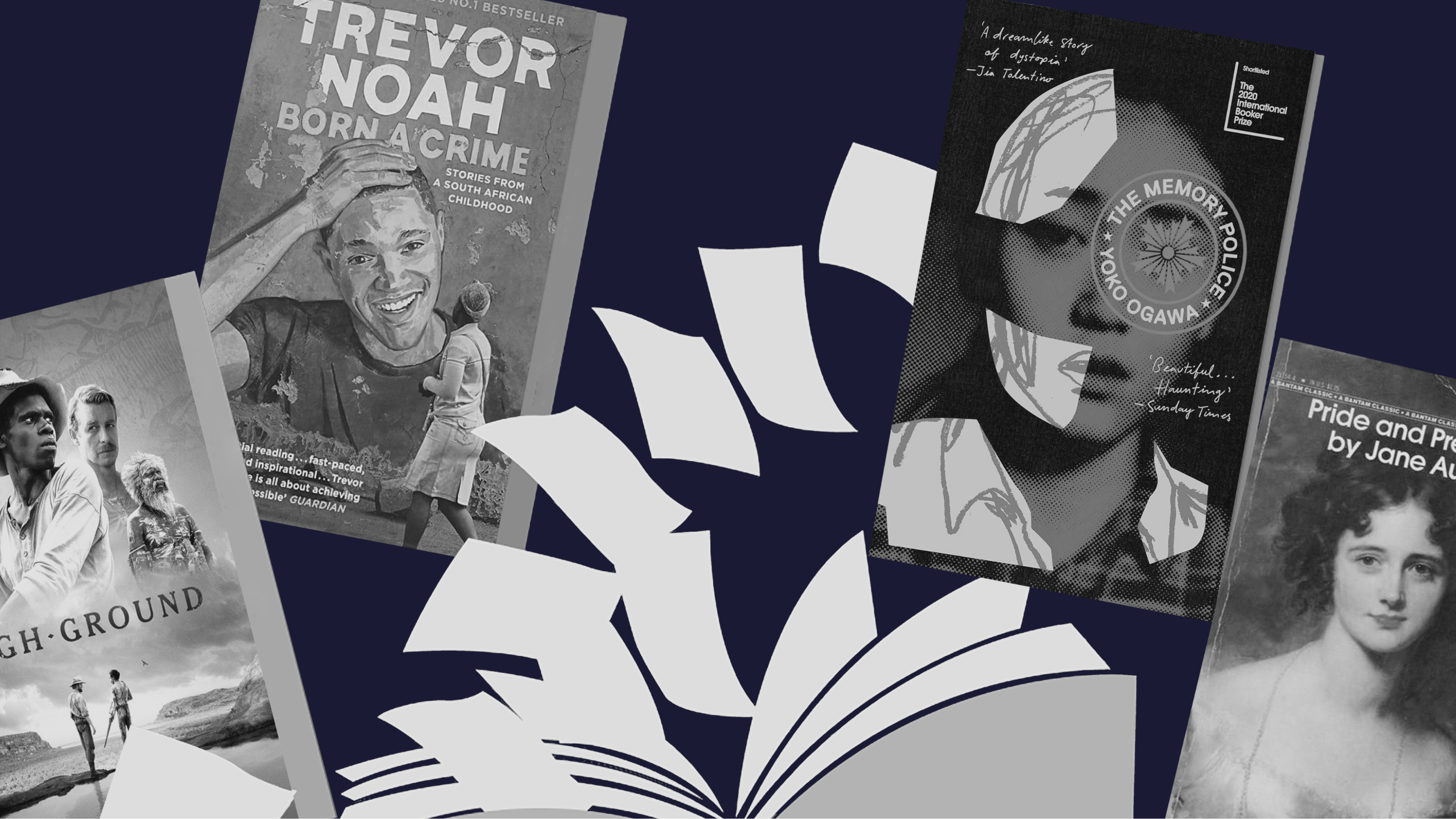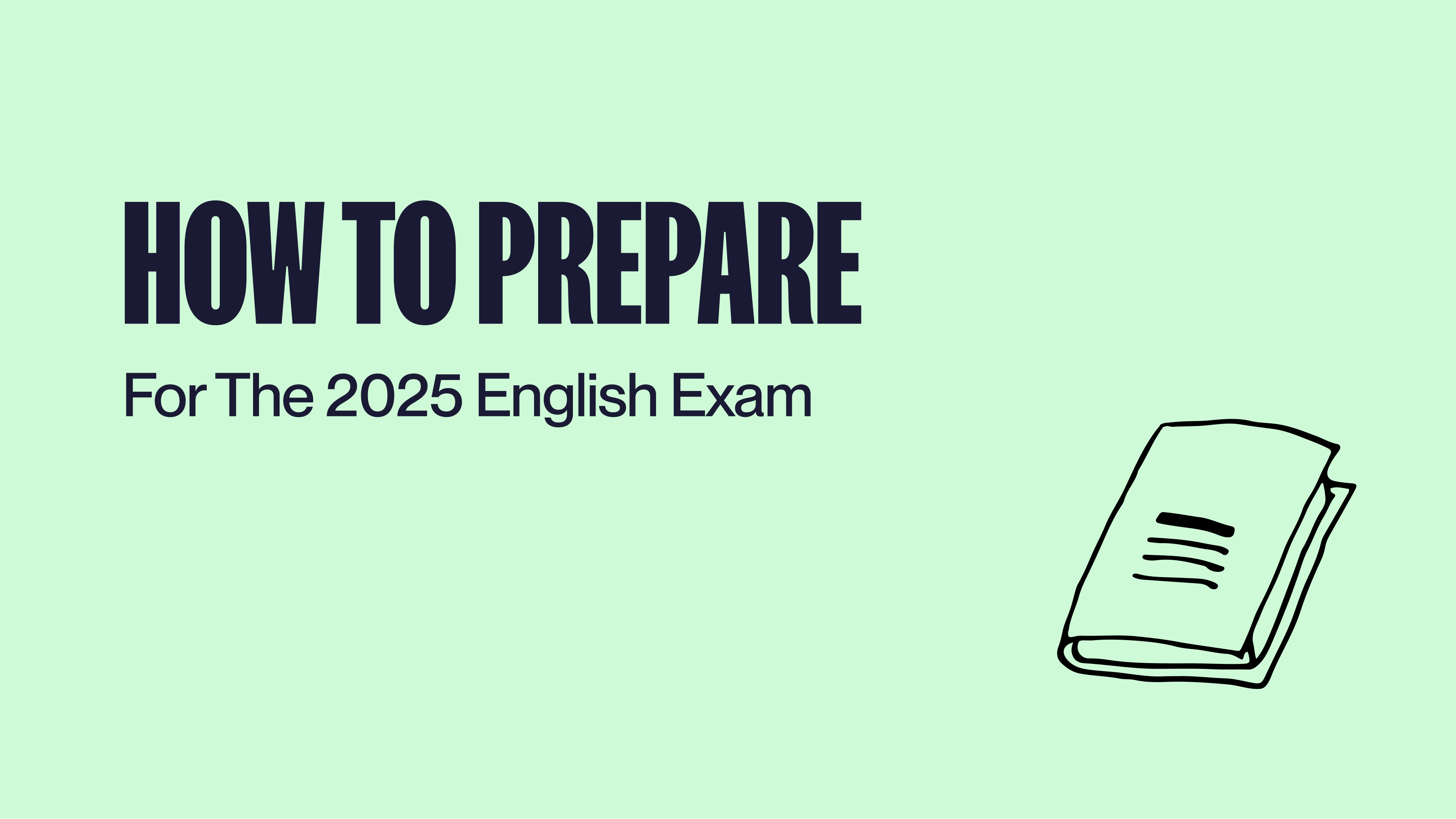
How to Set Yourself Up for Year 12 English Success
Summer’s finally here! While it’s important to take a break, soak up some sun, and finally get through your Netflix watchlist, it’s also the perfect time to get a head start on Year 12 English. If you are looking to secure those top scores, it’s essential to keep the work up over this holiday period. After all, VCE English is a marathon, not a sprint—though a little sprinting now will definitely give you an advantage!
First things first: set some goals. Picture your dream study score—go on, aim high! Whether it’s a 40+ or that elusive 50, having a clear target in mind can be really motivating. It doesn’t hurt to manifest, but also be ready to put in the work to achieve it.
Next, get yourself organised. Reflect on how you work best: experiment with study methods, try out a new timetable app, or simply declutter your workspace. English isn’t only about poetic musings and literary flair— it also requires structure, logic, and organisation.
And don’t forget to revisit your Year 11 feedback. Yes, although you might cringe at those red-inked comments, they’re actually golden nuggets of wisdom. Use the holidays to pinpoint your Achilles’ heel(s), whether that’s rambling introductions, a limited vocabulary, or shallow analysis. Identifying your weaknesses now will allow you to tackle them head-on before the pressures of Year 12 begin.
Before we get into each task, here’s a list of skill-oriented tasks you may want to set for yourself.
- Set some goals
- Trial different study methods and timetable apps
- Create a space that is conducive to learning
- Identify your weaknesses
Text Response
Your Section A text is going to be both your best friend and the bane of your existence for the year, so why not get that relationship started early?
The holidays are your opportunity to establish a foundational understanding of your text, so you can hit the ground running when school starts. Before you dive into your text, and if you aren’t afraid of spoilers, read a general summary of the plot so you can follow it clearly. (For those who are studying Willy Shakespeare, this may be particularly pertinent.)
Then it’s time to drag your friends along for a reading party or a watch session! In your first perusal, just try to enjoy and process the story without stressing yourself about analysing every little detail. Instead, jot down parts that gave you a strong emotional reaction, or anything you immediately found interesting - it’s really worth exploring why these scenes spoke to you, and how they’ve been constructed to create that response.
You might feel a little lost after your first read or watch of your text, especially if you’ve been saddled with a more complex one, but don’t worry - as you know, the internet houses a lot of people with a lot of opinions. Reading reviews, articles and academic journals (even Reddit threads if you’re that kind of person) is a great way to orient yourself in the text; they’ll provide you with interesting ideas and interpretations that you can adopt or challenge. This is also an opportunity to immerse yourself in the professional analytical language that experts use - feel free to nab the good stuff and store it in a doc for future use!
However, don’t call it a day after one read or watch. Try taking on a more analytical lens in your second or third round, and see if you notice new aspects of the text in each new dive-in. Aside from identifying key quotes, symbols and themes, ask yourself questions, progressing from “wait, who’s this character again?” or “oh my God, when does this chapter end?” - to more complex questions such as: why did that character do this? Who’s really in the right in this situation? If this scene hadn’t happened, what would change? Interrogate the text and the author as much as possible - and see if you can find answers to these questions throughout the year!
Your Text Response checklist
- Read a summary/synopsis of your text
- Complete your first reading/watching, through a lens of pure entertainment
- Complete your second reading/watching, through a lens of analysis
- Make a list of questions about your text
- Peruse secondary readings
- Start your bank of metalanguage/adoptable phrases from secondary readings
Crafting Texts
If your Section A text is like your bestie-slash-mortal-enemy of the year, then your creative text is basically your child. Over the year, you’ll be working on creating (raising, if you will) your piece - writing, editing, re-editing. And then - you guessed it - editing again! So, the sooner you start thinking about your creative text, the less daunting it will be when the first SAC rolls around. Get a leg up by thinking about what sort of text you might like to construct, and message you want to share, during the summer.
I understand the pain of staring at a blank document and waiting for words to magically appear, so start off broad by brainstorming - what are you passionate about, what stimulates your thinking? What does your Framework mean to you? A great, fun way to do this is making a moodboard! (Distantly, the cheers of Pinterest lovers echo through Victoria). Fill up your moodboard with stimulating images, snippets from poems or short stories that you like, Taylor Swift lyrics - whatever you’re drawn to that sparks inspiration. Or maybe you’re more aural than visual, and you want to make a playlist instead - moody instrumentals that capture the atmosphere of your piece, ballads whose lyrics inspire some cool ideas or, you know, Taylor Swift again - whatever gets you in the right headspace and excited to write.
And most importantly: read! The only way to efficiently create a text is to understand how other people have done it first. Delve into any stories, persuasive articles or written reflections that are linked to the Framework you’re creating from. Consider: what resonated with you, and why? What didn’t? Maybe you will even come across a line that is so good you have to look up from the page and contemplate life for a few seconds. Identify everything that you think the author has done successfully and collate it in a document, ready to be adopted into your own writing when you begin.
Your Crafting Texts checklist
- Make a playlist/mood board
- Make a list or mind map of some ideas you’d be interested in exploring
- Read texts adjacent to your framework
- Note down things you liked or didn’t like from your mentor texts
- Start compiling a list of phrases or ideas that you could eventually include in your piece
Argument Analysis
Argument analysis: some people love it, others hate it. Regardless of how you feel about this AOS, it’s an unavoidable part of both your SACs and the final exam. Thankfully, it’s structured, predictable and logical, meaning that you can build a strong foundation for it over summer.
A great thing about AA is that you can revise for it passively. Reading opinion pieces, listening to political speeches, or even watching a TED Talk are excellent ways to immerse yourself in persuasive language without feeling like you’re studying. As you read or listen, practice identifying the contention, main arguments, and persuasive devices. Is the writer tugging at heartstrings with emotive language? Deploying stats to bolster credibility? Recognising these strategies will sharpen your analytical eye, preparing you for the final exam.
This casual engagement isn’t just useful for AA; it can also double as inspiration for your oral presentation. Exploring current events and persuasive techniques might spark inspiration for your own piece. Plus, stealing (ahem, adapting) clever rhetorical devices or adopting a captivating persona for your presentation? Two birds, one stone—who says English can’t be strategic?
When you’re ready to advance to more active revision, annotating texts is a simple but effective exercise. Find an article, grab a highlighter and pen, and set a timer for 10-15 minutes. Underline persuasive techniques, note the shifts in tone, and identify how the structure builds the argument. Annotating is all about speed and precision—perfect for developing the analytical dexterity you’ll need when the clock is ticking in the exam room.
Finally, to put it all together, short, focused writing bursts are an excellent way to build your skills without overwhelming yourself. Contrary to popular belief, you don’t need to write a full essay every time in order to improve. Instead, start with a single paragraph or an introduction, aiming for clarity, depth and polish. This method helps you focus on quality and precision while building the stamina you’ll need for longer tasks. Don’t forget to review and edit it after; learning to critique your own work will be a game-changer as you refine your skills for Year 12.
Your Argument Analysis checklist
- Keep up to date with the news
- Watch or read opinion pieces, identifying main arguments + contention + devices
- Annotate texts under timed conditions
- Complete some practised writing bursts
- Edit and refine your own work
Final tips
With these checklists complete, you’re not just prepared for Year 12—you’re positioned to thrive. I’ve been where you are, and I know the pressure can feel overwhelming. But with a clear plan, hard work, and a little bit of positivity, there’s no reason you can’t succeed.
Struggling to stay motivated or unsure of where to start? If you need that extra structure and support, Lindsey’s VCE English Tutoring is here to help! We are offering private lessons over the summer to assist you with all that you need, whether that’s diving into texts, honing your essay-writing skills, or planning your creative masterpiece.
Our website is also packed with free resources designed to help you get ahead, with blogs, text guides, trial exams, and more. And don’t forget to follow us on Instagram and Tik Tok for exclusive tips, motivational content to keep you going when the grind feels endless, and the occasional meme to remind you that English can be fun (yes, really).
Use this summer wisely, and you’ll set yourself up for success in Year 12. A little prep now can make a huge difference later. When you’re ready to take your English game to the next level, you know where to find us.



